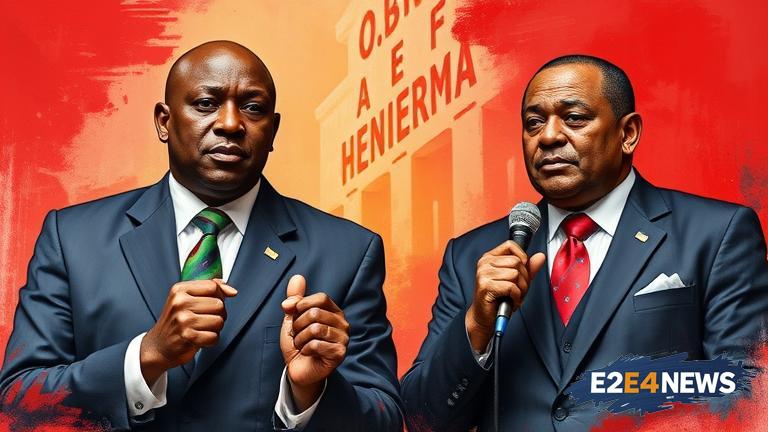The Economic Freedom Fighters (EFF) have emerged victorious in a court case against Kenny Kunene, a former member of the party who has been an outspoken critic of its leadership. The court’s decision has been hailed as a major win for the EFF, which has been embroiled in a bitter feud with Kunene for months. Kunene, a wealthy businessman and former politician, had been a key figure in the EFF’s early days, but he fell out with the party’s leadership and has since become a vocal critic. The court case centered around a series of defamatory statements made by Kunene against the EFF and its leaders, which the party claimed had damaged its reputation. The EFF had sought an apology and damages from Kunene, but he refused, leading to the court battle. The court’s decision has been seen as a major blow to Kunene, who has been accused of trying to undermine the EFF’s credibility. The EFF has welcomed the court’s decision, saying it vindicates the party’s stance and proves that Kunene’s claims were baseless. The party’s leader, Julius Malema, has been quick to capitalize on the win, using it to rally support for the EFF and attack its critics. Malema has accused Kunene of being a ‘counter-revolutionary’ who is trying to destroy the EFF from within. The court case has also highlighted the deep divisions within the EFF, with some members accusing the leadership of being authoritarian and intolerant of criticism. Despite these challenges, the EFF remains a major force in South African politics, with a significant following among young people and the poor. The party’s radical policies and anti-establishment rhetoric have resonated with many who feel disillusioned with the country’s traditional parties. However, the EFF’s leadership has also been criticized for its handling of internal conflicts and its treatment of critics. The party’s decision to take Kunene to court has been seen as an example of this, with some accusing the EFF of trying to silence its opponents. The court case has also raised questions about the limits of free speech in South Africa, with some arguing that the EFF’s actions could have a chilling effect on criticism and debate. Despite these concerns, the EFF remains committed to its radical agenda, which includes the expropriation of land without compensation and the nationalization of key industries. The party’s leaders have also been vocal in their criticism of corruption and inequality, which they see as major obstacles to economic development and social justice. The EFF’s victory in the court case against Kunene is likely to embolden the party’s leadership and reinforce its commitment to its radical policies. However, it also highlights the challenges facing the party, including internal divisions and criticism from outside. As the EFF looks to the future, it will need to navigate these challenges and find a way to balance its radical agenda with the need for internal unity and external credibility. The party’s ability to do so will be crucial in determining its success in the years to come. The EFF’s court victory is also likely to have implications for the broader political landscape in South Africa, where the ruling African National Congress (ANC) is facing growing challenges from opposition parties. The EFF’s radical policies and anti-establishment rhetoric have resonated with many who feel disillusioned with the ANC’s handling of the economy and corruption. As the country heads towards elections, the EFF’s court victory could give it a boost in the polls and reinforce its position as a major force in South African politics.





